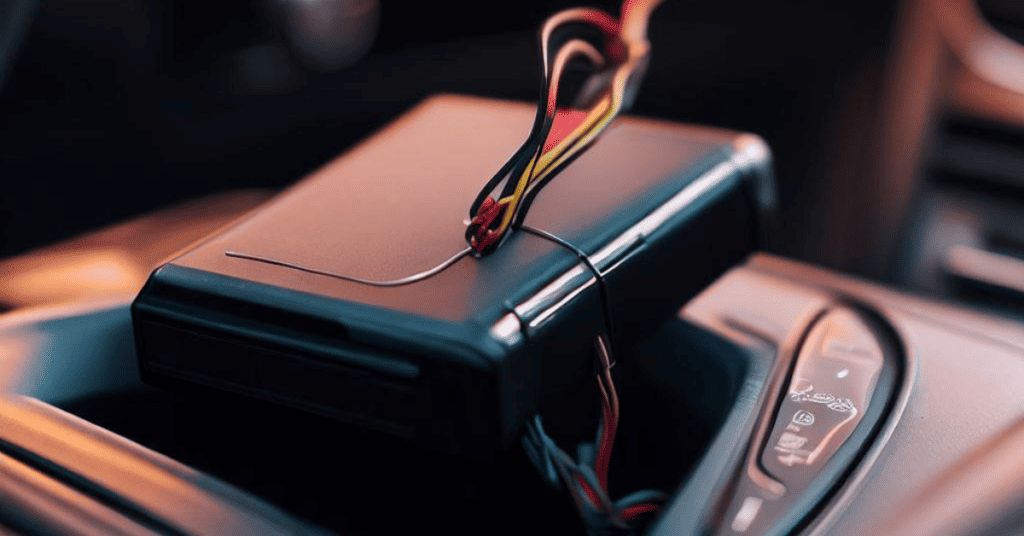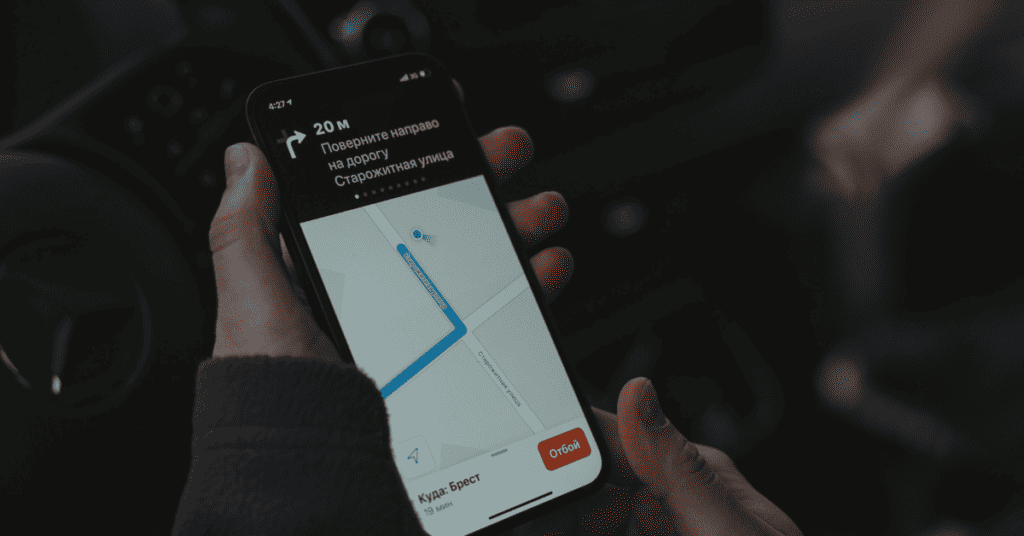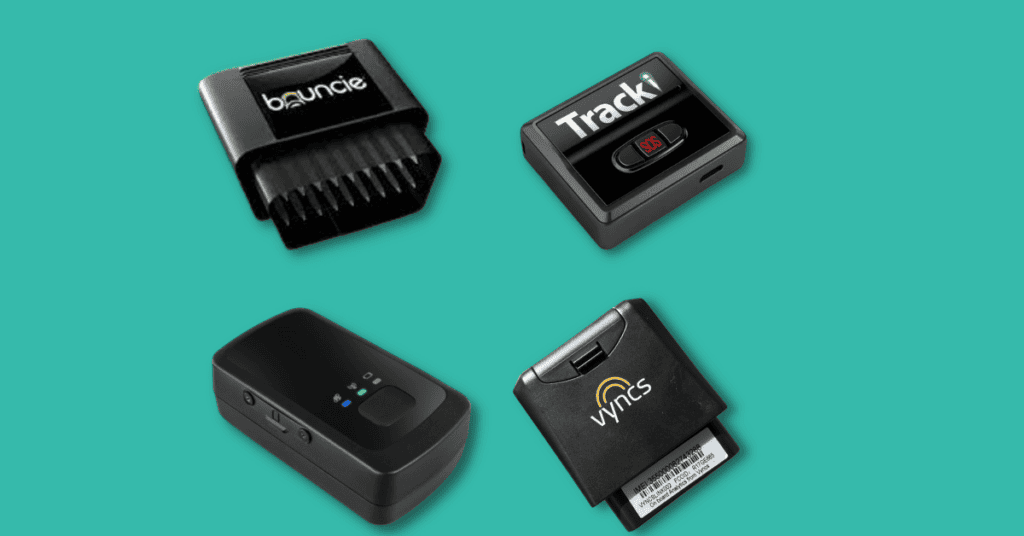The Global Positioning System (GPS) changed the course of navigation by upgrading the means of finding a location with the help of GPS coordinates.
It eliminated the necessity of asking strangers about an address or detouring to the wrong route by following their uncertain directions.
Besides being the modern-day North Star for travelers, its feature of estimating real-time location helps while tracking valuable assets and vehicles. Car rental owners and delivery companies place GPS trackers on their vehicles to keep them from getting stolen by unknown drivers.
Moreover, the advent of GPS trackers has made it possible to follow delivery agents and stay updated with the estimated time of your parcel’s arrival.
In addition to determining someone’s live location, some GPS trackers can also provide users with information regarding the car’s speed and the distance covered. For example, parents install these trackers on their teenager’s four-wheelers to learn about their whereabouts and driving habits.
Legally, car owners are at the liberty of installing GPS in their cars for safety reasons. But it’s forbidden by law to place trackers in someone else’s vehicles without the owner’s permission.
If your car has an unknown GPS tracker, it might mean someone is keeping tabs on your location without your consent. Therefore, it’s essential to learn about the signs and steps to follow to discover a hidden GPS tracker in your car for your safety.
Signs Someone Bugged Your Car With A GPS Tracker

Car owners and rental service providers trace their vehicle’s movement with GPS trackers for security purposes. As a vehicle owner, you can install GPS trackers in your car. However, it’s illegal to place trackers in someone else’s vehicle without their knowledge.
If you have an apprehension that you’re car is being tracked, you can look for the following signs before approaching authorities:
- After someone returns your car or it comes back from service, you notice a new installation or an unfamiliar object in it. There is a possibility that it’s a GPS tracker.
- You notice unaccountable drainage in your car’s battery. Most GPS trackers use the vehicle’s electrical system to charge itself. A drastic or frequent drop in your car’s battery level may indicate the presence of a GPS tracker in it.
- If you use a smartphone app to track your four-wheeler and notice an unusual surge in its data usage, it’s a sign that someone is monitoring your car with a GPS tracker.
- Don’t overlook someone’s suspicious behavior of showing up wherever you go. If someone always seems to know your location, there is a chance that they’re tracking your car with a GPS tracker.
- Some GPS trackers emit a high-pitched noise while functioning. Check for GPS tracker installations in your car if you notice such absurd noises.
Investigate your car yourself, or take it to an expert if you observe these signs. Your safety and privacy might be at risk. Thus, if you find an unknown GPS tracker inside your car, you must alert the police.
How Does A GPS Tracker Work Inside Your Car?
A GPS tracker fitted inside a car functions through the Global Positioning System (GPS). It determines your car’s real-time location and sends this information to the receiver over a satellite network.
Following is a simple breakdown of the entire process:
- The tracker inside your car has a GPS receiver and an antenna. It receives signals from GPS satellites to calculate its location. The antenna improves the quality of the signal received.
- The receiver then sends the location data to an online server using a cellular or satellite network.
- The server stores this information and allows the car’s owner or third-party service provider to access it to monitor the vehicle’s position.
Some GPS trackers can also track the car’s speed, direction, and distance covered by it. While the legal use of this information can be to recover a stolen car or take note of a teenager’s driving pattern, some may illegally use GPS trackers by fitting it in a vehicle without its owner’s knowledge and tracking their automobile for malafide reasons.
How To Find a Hardwired GPS Tracker On Your Car?

Spotting a hardwired GPS tracker can be tricky because of its cloaked appearance. However, here are some ways to locate it if you’re suspicious of its presence:
- Start by looking for wiring connections that seem new. A hardwire GPS tracker requires a wire to connect to the car’s electrical system. Move to search your vehicle for any wires that look out of place. Wires running from dashboards or under your seat must not escape your scrutiny.
- Check your car’s battery. These trackers use the car’s battery to charge themselves. Unusual drainage in it might suggest the presence of a hardwired GPS tracker inside your vehicle.
- Look for new electronic installations in your car. Any object, like a small box or a USB drive, could be a GPS tracker.
- Use GPS tracker detectors. These detect any active signals emitted by GPS trackers within a specific range. You can purchase it from an online store or find it at a security equipment shop.
- Seek help from professionals. If these tests do not relax your anxious intuition about a GPS tracker in your car, it’s better to get your automobile checked by a professional. You can ask your mechanic or security experts to help you identify suspicious wires or devices in your car.
How To Find Plug-In GPS Trackers In Your Car?
Plug-in GPS trackers are easier to locate in comparison to hardwired GPS trackers. You can run the following test to ascertain whether your car has a plug-in GPS tracker:
- Start by physically inspecting your car’s interior. Plug-in GPS trackers function from the car’s OBD-II port beneath the dashboard or steering wheel. If you find any suspicious device plugged into it, there is a high chance of it being a tracker. These GPS trackers are compact and negligible. Therefore, you must closely inspect the port.
- Check your car’s battery. Plug-in GPS trackers run by drawing power from your car’s battery. If you see your car battery getting drained frequently, it might indicate the presence of plug-in trackers.
- Inspect any new installations made in your car. Your car may have a plug-in GPS tracker if you notice any black box or USB drive-like object attached to your car’s power port.
- GPS tracker detectors might also help your inspection. It’s excellent at tracking active GPS signals within a specific distance span.
- There are some mobile applications for detecting GPS signals. You can download these apps and use them to reveal any active GPS signals inside your car.
If these tests do not suffice your suspicion, it’s advisable to get your car checked by a mechanic or a security expert for unknown GPS installations.
How To Find Battery-Powered GPS Trackers On Your Car?
It’s challenging to detect battery-powered GPS trackers as their traceability resembles that of a hardwired GPS tracker, and their size is similar to a plug-in GPS tracker. Moreover, it doesn’t need a connection to a car’s battery to charge itself. Therefore, it can be positioned anywhere within a car’s body without raising suspicion.
Investigate your car thoroughly with these steps to locate battery-powered GPS trackers:
- The small stature of these GPS trackers makes them unnoticeable. Begin your investigation by looking for new installations or unfamiliar objects. As battery-powered GPS trackers are easy to hide, it’s mandatory to check under seats, glove box compartments, and the spaces of the center console. Don’t forget to check the underside of your car.
- Use a potent GPS detector. Run this device over your car’s interior, bonnet, truck, and underside. The ability of this device to catch active GPS signals can help you locate the battery-powered GPS tracker in your car.
- Take your car to professionals if you’re still uncertain about the existence of a GPS tracker inside your vehicle. Any experienced car mechanic or security professional can check your car to clarify your apprehension.
How To Find a Smartphone GPS Tracker On Your Car?

Smartphone GPS trackers are easy to trace. Follow these simple steps to detect the tracker inside your car:
- Conduct a visual search. Smartphone GPS trackers are not inconspicuous. However, someone can strategically hide it in your car to avoid its detection. Check your vehicle thoroughly for a smartphone or smart device that doesn’t belong to you.
- Investigate convenient hiding spaces like your car’s glove box, the void area of your center console, under your seat, or in your trunk.
- Use a radio frequency detector. If you cannot locate the GPS tracker through a physical search, this detector might sense the radio frequencies emitted by the tracker and point out its location.
- You can also use a GPS tracker detector. Its capability to accurately find an active GPS signal can help your investigation.
- Reach out to professionals. After running these searches, if you’re still unsure, you can seek the help of a security professional. They have advanced technologies to root out undetected GPS trackers.
What To Do When You Find a GPS Tracker On Your Car?
If you find a GPS tracker installed in your car without permission, your safety and privacy might be at risk. You must take immediate action by following the steps given below:
- Don’t remove the GPS tracker yet. It’s strong evidence for building a case in your favor. Leave it exactly where you found it in the car.
- Take pictures of the GPS tracker. Document its location in the car before approaching the authorities. It’ll contribute to your case against the person who installed it.
- Remove it after documenting its presence. Use a glove or throw a handkerchief over it when you detach it to avoid leaving your fingerprints behind.
- Alert your local police authorities about the GPS tracker and give them your gathered evidence. They’ll consider your documents and begin their legal investigation.
- If someone installed a GPS tracker in your car without your knowledge, they might have your keys or other options for entry. It’s better to secure your vehicle by changing its locks and adding an alarm system to prevent any future attempts of unconsented access to your car.
- It’s illegal to track someone’s vehicle without their consent. If you’re sure that someone violated your car’s privacy with a GPS tracker, it’s advisable to seek legal advice. Talk to your lawyer and plan legal action against the perpetrator.
Types of GPS Trackers For Cars

Usually, there are four kinds of GPS trackers used for determining the location of a car, namely:
- Hardwired GPS tracker: This is a permanent kind of GPS tracker with its installation made within your car’s electrical system. It operates on the car’s battery. Hardwired GPS trackers are more efficient and reliable in terms of functioning and fall in the higher range of pricing. The most common spot for its placement is behind the car’s dashboard, which makes it difficult to be spotted.
- Plug-in GPS trackers: These trackers plug into your car’s On-Board Diagnostic (OBD) port, which is present under the dashboard. It runs on the power from the car’s electrical system. Plug-in GPS trackers are transferable from one vehicle to another and, therefore, temporary. They’re less expensive as compared to hardwired GPS trackers.
- Battery-powered GPS Trackers: These trackers function on a built-in battery. Its small stature makes it discreet. Anyone can fix this kind of GPS tracker inside a car without drawing much attention. It’s the least expensive car tracker.
- Smartphone GPS trackers: A smartphone can become a GPS tracker by installing a GPS app. These apps use the GPS sensor of a smartphone to track the vehicle’s location in which they’re present. Although its information is not as accurate as other GPS devices, it’s a low-cost option for tracking a car.
FAQ’s
Here are commonly asked questions about finding GPS trackers in cars:
Yes, you can use GPS detection devices to check for hidden trackers in your vehicle. Ensure to check manually and through gadgets to identify any GPS trackers that can avoid mediocre signal detectors.
Perform an interior and exterior vehicle scan using a combination of GPS detection devices and manually checking for newly attached objects. Verify with a mechanic by allowing them to open car parts such as data ports, storage compartments, doors, the car’s bonnet, and the engine box.
Unless you’re open to dismantling your car to sweep for GPS tracking devices, consider keeping an electronic bug sweeper in handy. These signal detection devices can identify radio and GPS signals and also unveil the tracking device’s position in your car.
Conclusion
In today’s technological era, it’s easy to follow someone or track their routine with the help of a GPS tracker. With daily advancements enhancing the accuracy of this innovation, it has become a potent way to stalk someone without raising eyebrows.
Following the age-old notion of “better safe than sorry,” it’s a must for car owners to be aware of people who access their vehicle, have keys to their ride, or any new installation in their car after its servicing.
The process of locating and reporting a GPS tracker in your car is simple:
- Conduct a physical search of your vehicle by yourself.
- Seek professional help if self-search does not suffice your apprehension.
- Alert the authorities if you find an unknown GPS tracker in your car.
Don’t hesitate to take legal action against the person who installed the tracker in your car. Seek legal advice and bring a lawsuit immediately after the police investigation reveals the criminal.

Meet Klark Kurz, a GPS enthusiast and author with a B.B.A. in Finance from Texas A&M University. With a passion for technology and innovation, Klark provides accessible and user-friendly content to help individuals and businesses make informed decisions. As a regular contributor to TraxFamily.com, Klark’s insights and practical advice make GPS tracking more accessible, affordable, and user-friendly.
